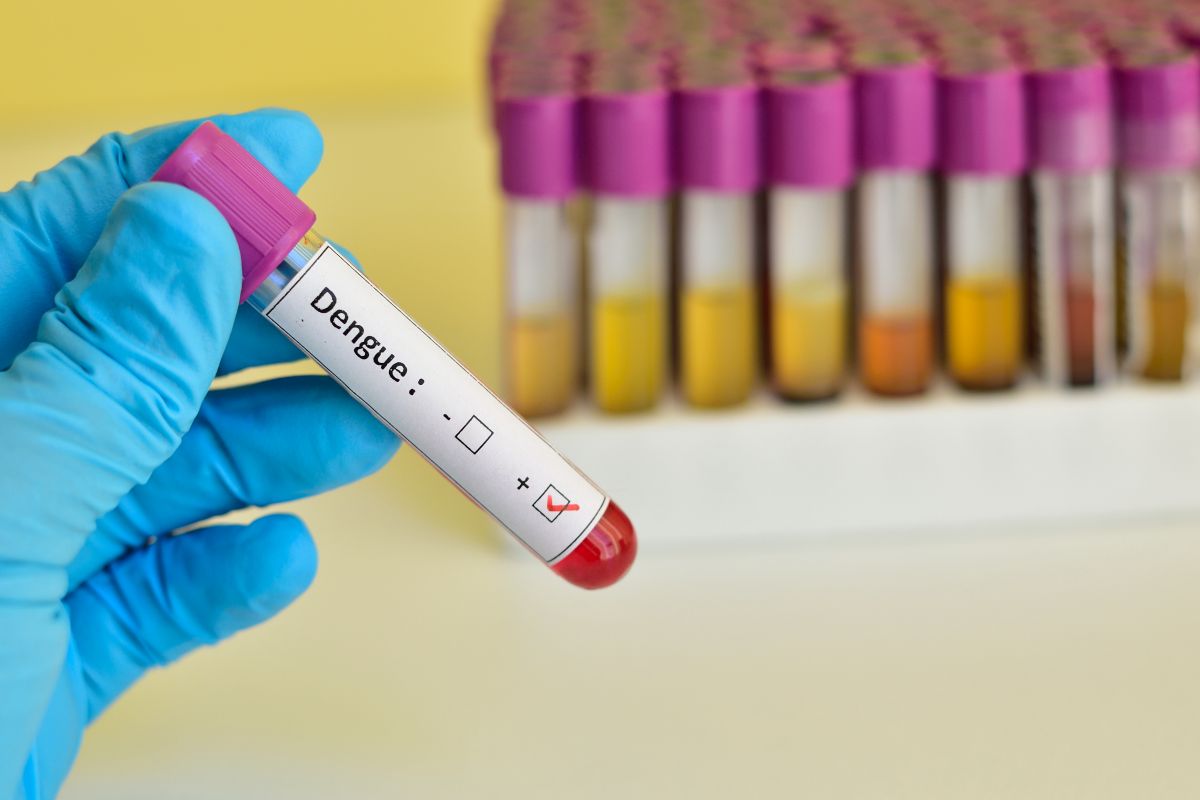Keep colonies clean to avoid diseases, Nadda tells RWAs
Union Health Minister J.P Nadda on Tuesday urged the Resident Welfare Associations to keep their colonies clean in order to…
Dengue can prove to be fatal in some cases, and hence, it is crucial to prevent the disease by maintaining cleanliness in the surroundings, especially during monsoons

(Photo: Getty Images)
National Dengue Day 2019: With the monsoons around the corner, the numbers of mosquitoes are on a steady rise, increasing the risk of getting diseases spread through collected water. Rampant construction in the city also has led to a spurt in the mosquito population. Malaria, Filariasis, Dengue, Zika and Chikungunya are some of the ailments that are transmitted due to insects and it is imperative to keep oneself safe from such diseases. Dengue, in particular, has been a cause of grave concern, with the Center for Disease Control and Prevention (CDC) report stating that an estimated 400 million people around the world get infected with this virus each year.
In the last four months, 3,875 breeding sites were found by the Brihanmumbai Municipal Corporation (BMC) in Mumbai.
Dengue is a viral infection transmitted by the bite of female Aedes aegypti, a species of mosquitoes that is also responsible for spreading Zika, Chikungunya and Yellow Fever. The disease is widespread in tropical and sub-tropical areas in Southeast Asia, the Western Pacific, the Eastern Mediterranean, the Americas, the Caribbean, and Africa. Dengue often manifests initially as a simple flu, but if symptoms are overlooked or left untreated,it can turn fatal, causing severe dengue like- dengue haemorrhagic syndrome or dengue shock syndrome.
Advertisement
The most common symptoms of the disease are fever along with any of the following:
• Headache
• Eye pain (typically behind the eyes)
• Muscle, joint, or bone pain
• Rash
• Nausea and vomiting
• Unusual bleeding (nose or gum bleed, small red spots under the skin, or unusual bruising)
If the disease is mild, it can be treated at home with the help of acetaminophen (paracetamol), adequate rest and adequate intake of fluids. However, one needs to be careful and observe the patient closely for variousserious symptoms which may develop, such as:
• Severe abdominal pain or vomiting (at least 3 vomiting episodes within 24 hours)
• Bleeding from the nose or gums
• Vomiting blood, or blood in the stool
• Drowsiness or irritability
• Pale, cold, or clammy skin
• Difficulty in breathing
If the patient exhibits these symptoms, they should be taken to the hospital immediately.Failure to do so may prove(be) fatal.
Although a vaccine (Dengvaxia) is available to prevent human infection, it is only recommended in those who have been previously infected by this virus. But prevention is truly better than cure. Personal and environmental safety should be of prime importance for best outcomes.
To ensure personal safety from Dengue, one must make a note of the following:
1. Use mosquito repellents containing DEET (N,N-Diethyl-meta-toluamide); do not spray the repellent directly onto skin and in case of young children, first spray it on your hands and then apply it on them.
2. Use screens and mosquito nets to keep the insects at bay.
3. Wear comfortable clothing that provides maximum coverage, thus protection
4. Avoid using strong fruit fragrances and lotions as it attracts mosquitoes
Environmental safety is just as important, as the Aedes mosquito breeds inside and outside the home in stagnant water. Make sure to keep containers holding water covered, don’t let water accumulate anywhere for long. These mosquitoes rarely fly more than 200 metres from the breeding site. They do not breed in creeks, swamps, pools or other bodies of dirty water. Thus, keeping your environment clean and hygienic is necessary.
Some other precautionary measures one can take include the following:
1. Install screens or nets on all doors and windows.
2. Check the walls of the house for cracks or holes and also water seepage. Seal out any damage.
3. Sleep in an air-conditioned room as mosquitoes tend to stay away in colder temperatures.
4. Once a week, empty and scrub, turn over, cover, or throw out items that hold water, such as tires, buckets, planters, toys, pools, birdbaths, flowerpots, or trash containers, as these act as their breeding ground.
Dengue is a common disease and can prove to be a fatal one. Hence, it is crucial to prevent the disease by maintaining cleanliness in the surroundings, especially during monsoons. The monsoon season provides favourable breeding grounds for dengue causing mosquitoes and therefore to maintain one’s health these tips can be kept in mind and implemented.
(Dr Deepesh Agarwal, Head- Critical Care Medicine, Saifee Hospital)
Advertisement